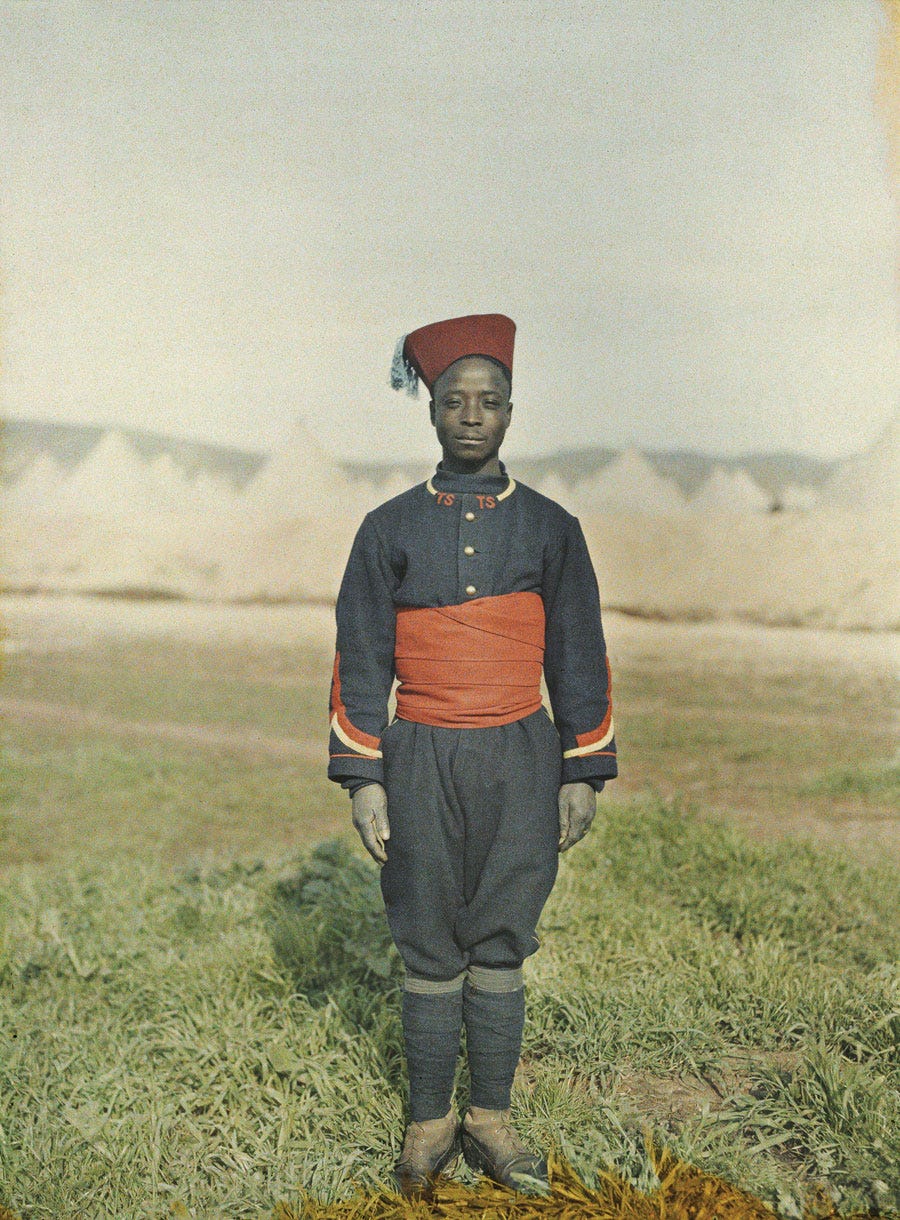Starting this week, we'll be sending our newsletter 3 times a week (Monday, Wednesday, Friday) instead of daily, based on your valuable survey feedback.
If you haven't shared your thoughts yet, we'd still love to hear from you—please click the link below to shape our newsletter's future!
Image of the Day

Spotlight Stories
France Finally Acknowledges the Thiaroye Massacre... 80 Years Later 🙄
Imagine fighting for France during World War II, only to be shot dead by the very army you served. That's the tragic story of dozens of African colonial troops, known as "tirailleurs senegalais," who were massacred by French officers at the Thiaroye camp in Senegal on December 1, 1944.
Why? Because they had the audacity to demand equal treatment and payment of bonuses owed to them. The nerve, right? 😒
Fast forward 80 years, and France has finally decided to honor six of these soldiers - four from Senegal, one from Côte d'Ivoire, and one from present-day Burkina Faso - with the prestigious "died for France" designation.
Historian Samba Diop, who's been researching the massacre for three decades, calls it a "salutary decision" that allows families to finally mourn after 79 years.
But not everyone's impressed. Senegalese Prime Minister Ousmane Sonko took to social media to remind France that this isn't just their story to tell.
Of course, some critics say France's gesture, while welcome, doesn't go far enough. But historian Martin Mourre believes it's important to acknowledge the progress, even if it's motivated by France's desire to ease tensions with its former colonies in West Africa.
Ethiopia's Kidnapping Crisis: A Dark Cloud over the Horn of Africa

In a troubling turn of events, Ethiopia is grappling with a widespread kidnapping epidemic that's become so pervasive, it's now "very rare" to find a family untouched by its effects. The latest incident involves over 100 people, mostly students, currently held for ransom.
The epicenter of this crisis is the Oromia region, a restive area that surrounds the capital, Addis Ababa. Recently, buses ferrying students from Debark University to the capital were ambushed, with gunshots and violence ensuing. One student, still in captivity, managed to make a clandestine phone call home, painting a grim picture of the situation, including reports of killings among the captives.
While some kidnappings are politically motivated, many are simply a product of Ethiopia's struggling economy. Ransom collection has become a lucrative venture in a country where opportunities are scarce.
The government's response to this crisis has been less than stellar, described as "ham-fisted" and characterized by arbitrary arrests.
This kidnapping epidemic is symptomatic of deeper issues plaguing Ethiopia - political instability, economic hardship, and regional tensions. The Oromo Liberation Army (OLA), fighting for the "self-determination" of the Oromo ethnic group, has been linked to some of these crimes, although they deny involvement.
The human cost of this crisis is staggering. Victims often endure torture, cruel treatment, and detainment under inhumane conditions. Families are left in anguish, scrambling to meet exorbitant ransom demands that can reach up to 700,000 Ethiopian birr (£9,400) - a fortune in a country where economic opportunities are limited.
Africa's Power Players: Down but Not Out
Looks like Africa's dynamic duo, Nigeria and South Africa, are having a bit of a rough patch. These two heavyweights, who usually call the shots in African affairs and represent the continent on the global stage, are currently stuck in their own domestic drama.
President Bola Tinubu's first year in office has been about as smooth as a rollercoaster ride through a hurricane. His "Renewed Hope Agenda" turned out to be more like a "Renewed Nope Agenda." The naira's doing a disappearing act against the dollar, and Tinubu's foreign policy is more about alliteration than action.
Meanwhile, in South Africa, the ANC's lost its majority for the first time since 1994. Now they're in a coalition with their rivals, the Democratic Alliance. It's like forcing oil and water to mix - sure to be interesting, if not entirely effective.
With these two giants preoccupied with their own issues, who's going to step up and represent Africa on the world stage?
Africa's facing some serious challenges - rising extremism, geopolitical tensions, you name it. But its two main players are too busy putting out fires at home to lead the charge internationally.
So, what's next for Africa? Here’s more on this.
Food for Thought
“Peace is costly, but it is worth the expense.”
— Kikuyu, Kenya Proverb





